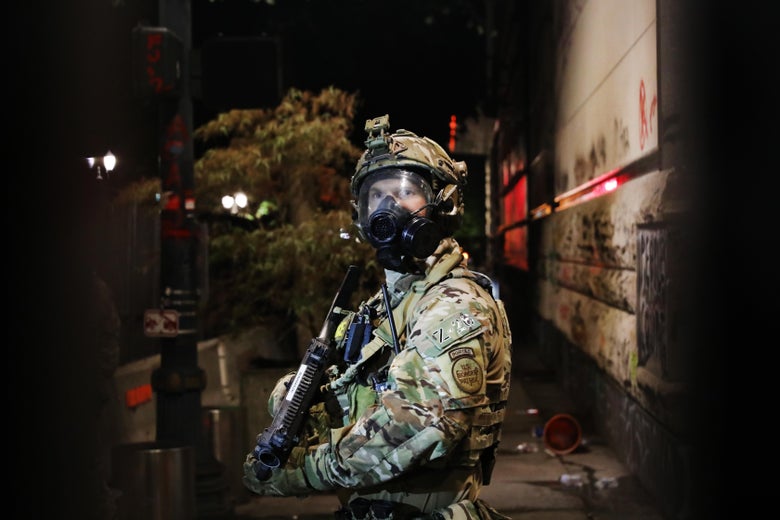
A federal judge in Portland rejected a motion by Oregon's attorney general that sought to put restrictions on federal agents who have been facing off against protesters in the city and even snatching some people off the streets while riding unmarked vehicles. The lawsuit filed by Ellen Rosenblum called for a restraining order that would prevent federal agents from arresting people without probable cause and require them to clearly identify themselves and who they worked for before taking anyone into custody during demonstrations that have gone on in the city for almost two months.
U.S. District Judge Michael W. Mosman said the state didn't have proper standing to file the lawsuit because it had now shown the issue was "an interest that is specific to the state itself." The judge also noted that the lawsuit was a "highly unusual one with a particular set of rules." That was in part because the state had sued on behalf of its residents but no protester was a plaintiff in the case. Plus, the state was trying to get a restraining order to prevent injuries by federal agents in the future rather than "redress for any harm that has been done to protesters," the judge wrote.
Rosenblum said she was " quite disappointed" with the decision. "If I don't have standing, I'm not quite sure who does," Rosenblum said. But legal experts had warned this could happen and said that a lawsuit by someone alleging that federal agents had violated their constitutional rights would have a higher chance of succeeding. "The federal government acted in violation of those individuals' rights and probably acted in violation of the Constitution in the sense of exercising powers that are reserved to the states, but just because the federal government acts in ways that overstep its authority doesn't mean the state has an injury," Michael Dorf, a constitutional law professor at Cornell University, told the Associated Press. Rosenblum, however, insisted that the judge's rejection was "troubling" because while individuals can sue for damages "they can't get a judge to restrain this unlawful conduct more generally."
Shortly after the judge issued the ruling, thousands of protesters gathered in downtown Portland once again in what "was the largest crowd since early weeks of the protests that started 58 days ago," notes the Oregonian. Demonstrators shot fireworks at the federal courthouse and the protests continued for hours until federal agents began firing tear gas at close range early in the morning to disperse the crowd. It was unclear whether any of the protesters were arrested after the federal agents declared the gathering an "unlawful assembly." One person was found stabbed near the protests and a suspect was taken into custody.
On Friday, prosecutors unveiled charges against 18 protesters in Portland that included assaulting police officers and arson. The charges were filed a day after the Trump administration decided to send a team of tactical police officers to Seattle despite the objections of the city's mayor and Washington's governor.